
by Adam Bate
Frans Hoek is a legend of goalkeeping. A former coach of Ajax, Barcelona, Bayern Munich and Manchester United, he has been a trusted advisor to Johan Cruyff and Louis van Gaal.
Perhaps you know him best as the man who helped come up with the idea to bring on Tim Krul for a penalty shootout for the Netherlands in their 2014 World Cup quarter-final.
Inside the game he is regarded as something of a pioneer, the man who wrote the book about goalkeeping. In his particular case, that is not a turn of phrase but a literal truth.
Hoek's thesis on goalkeeping was published when he was just 22. He was still playing in the Eredivisie for Volendam when Cruyff approached him to discuss his unique ideas. He recognised a fellow lateral thinker. Together, they shaped the future of goalkeeping.
In this wide-ranging interview, Hoek explains that journey. He discusses the resistance experienced at Manchester United and beyond, and the reasons why it does not bother him.
This is a man still willing to embrace new ideas. A coach who is ready, he insists, even if FIFA should decide to introduce a rule banning goalkeepers from using their hands.
This is the remarkable story of Frans Hoek.
Hoek’s story starts not with goalkeeping but with judo. His interest in martial arts began at the age of four, long before he had been introduced to football. That was significant because it taught the young Dutchman a very different way of goalkeeping.
"Because of judo I basically had no fear," Hoek tells Sky Sports.
"I would fall and dive in the street but I was never injured because I learned how to deal with my body when it hit the ground. For me, goalkeeping was close to judo."
By the age of 14, he was a goalkeeper in senior football. He happened to be around when the partner of the first-choice keeper went into labour. By his own admission, Hoek "could not even touch the crossbar" but his style of goalkeeping was unusual enough to impress.
"What I did looked spectacular to people because of the judo – the diving and the one-on-one situations with me not being afraid. It drew a lot of attention. People seemed to like it."
Hoek's performances sparked interest from professional clubs and he opted for Volendam on the understanding that they would continue to pay for his study.
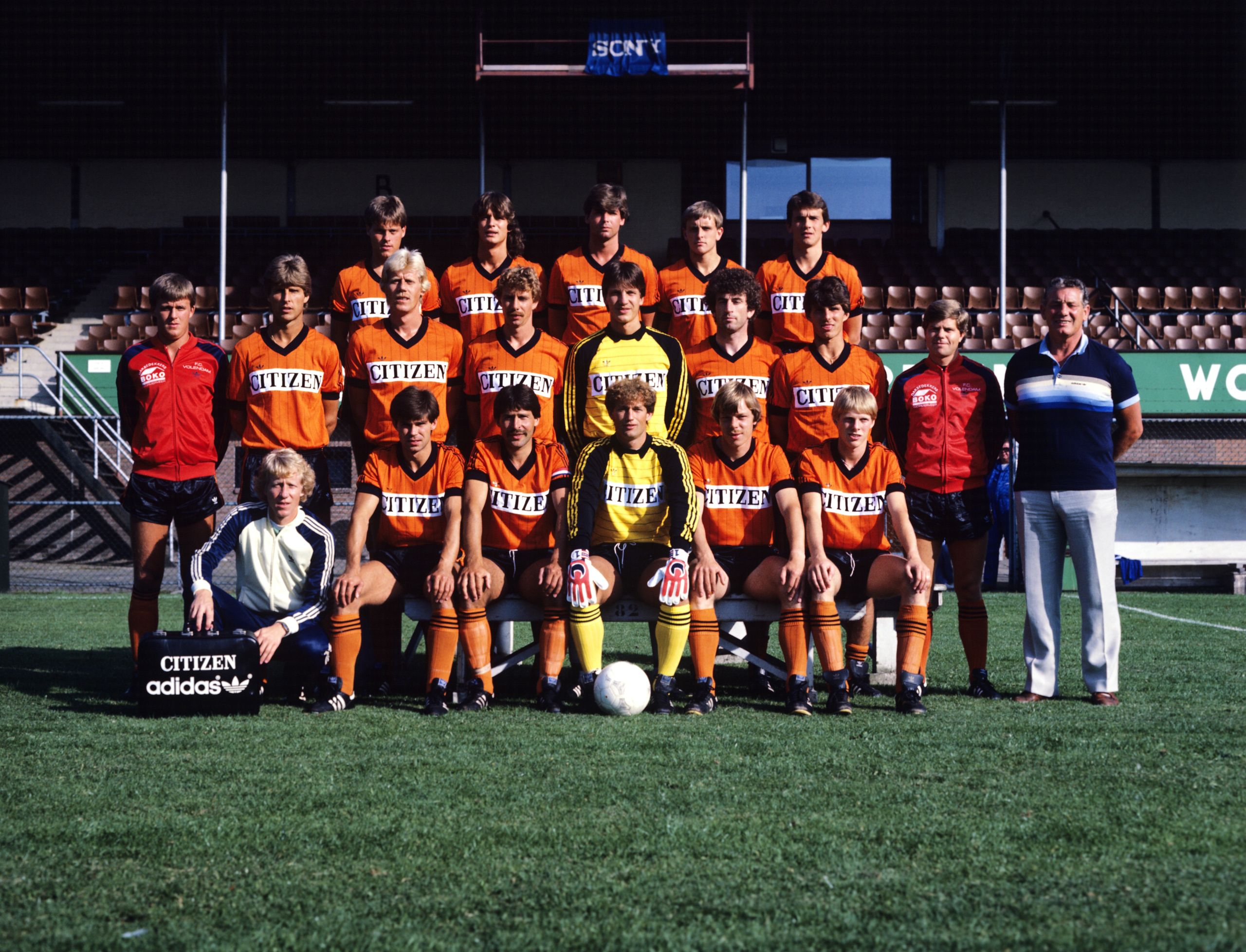
It was this attempt to fuse the worlds of football and education that changed his life forever when he chose goalkeeping as the subject for his thesis. He soon discovered a problem.
"It was an easy decision for me or so I thought," says Hoek. "You need information for a thesis and I could find no information on goalkeeping anywhere. I was in trouble there.
"I had to start investigating for myself. There was no internet, of course. I was having to find newspaper interviews. Requesting pictures. Collecting what goalkeepers had been saying, what coaches had been saying about goalkeepers. That is where it all started."
When he was done, Hoek had produced the first ever study on goalkeeping.
"At that moment, it was unique. It was no more than something made up by myself. I was just trying to explain something from my feelings about what I thought goalkeeping was.
"But everybody thought it was good. There were a lot of coaches who were borrowing it at that time. Suddenly people wanted me to say stuff about it. But I was only 22.
"I was not a goalkeeper coach, I was a player. And besides, the role of goalkeeper coach did not exist at that moment. That was just an assistant shooting some balls at the goalkeeper."
Hoek is speaking from his office in Hoorn, 30 miles north of Amsterdam. "I still have my thesis here," he says. Many figures in football have studied that old thesis over the past 40 years but none more famous than the Feyenoord player who approached him back in 1984.
Hoek was 27 and still playing in the Eredivisie for Volendam when Cruyff made a beeline for him.
"He turned to me and told me that he had read my book and was very impressed by it. I could not believe it. This was the big Johan Cruyff saying this. Anyway, nothing happened right away. I got injured that season and Johan went to Ajax the next year as their manager.
"I was finishing playing and he called me. At first I thought someone was making fun of me but it was really him. He told me that he loved to work with specialists and in his opinion I was a specialist. He asked me to go and speak to him. That is what I did in October 1985.
"Who wants to say no to Ajax? Not me. Johan is Johan so, of course, he was impressive. He is a fantastic person. A warm person. But he is still Johan Cruyff. It was an excellent feeling. I started as the first specialist, certainly in Holland, but I think also outside of that."
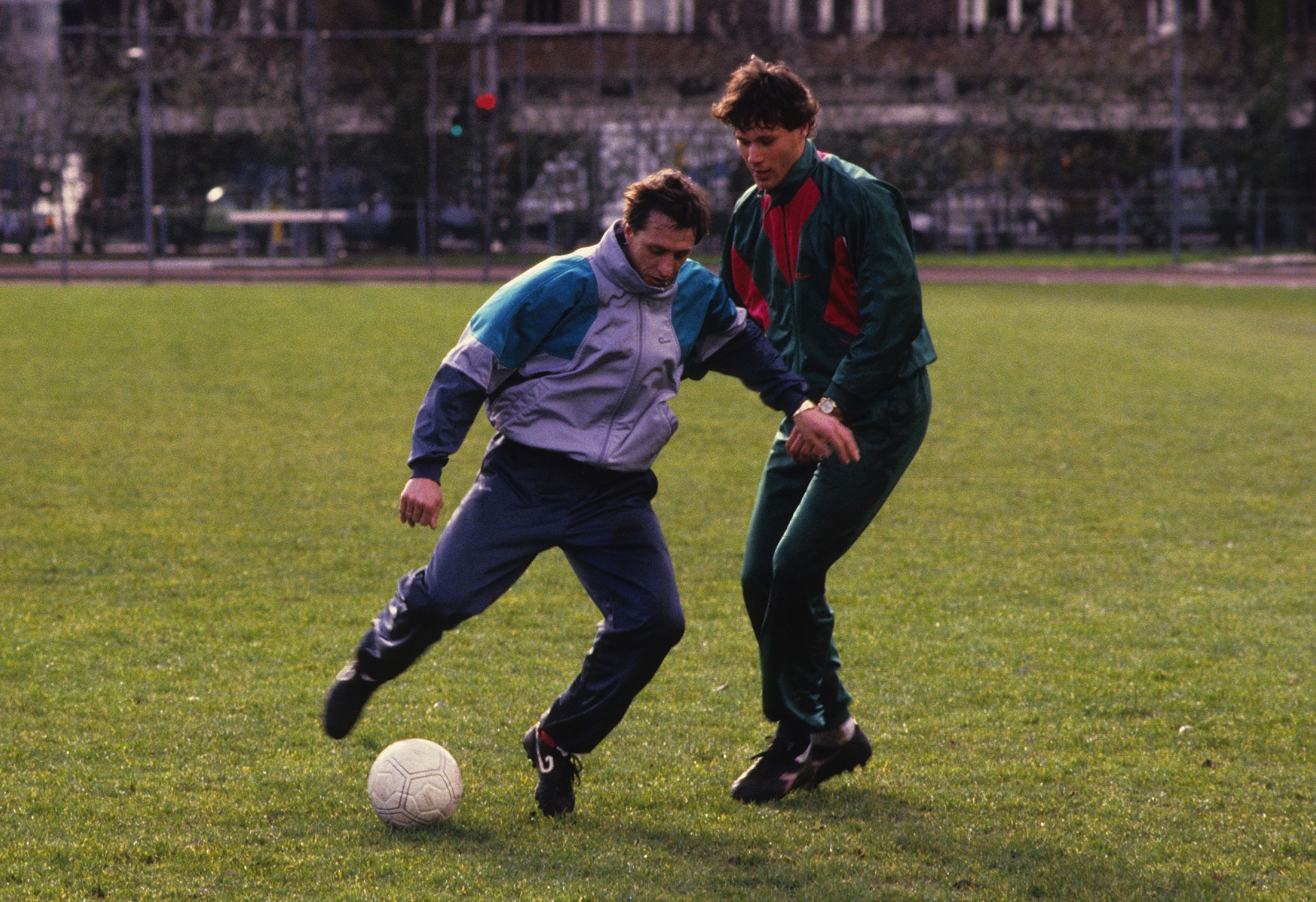
Cruyff knew he wanted Hoek but he could not be sure exactly what he wanted him to do. He was not alone in that feeling either. Hoek himself was uncertain as to his role.
As well as writing his thesis, he had been a goalkeeper of some repute. The great Hans van Breukelen had even been his understudy at one time. He had a physical education degree. He had his coaching licence. He had taken training camps. He had lectured on the subject. But here he was confronted with the role of goalkeeper coach, working each day with the players.
"I did not know what to do," Hoek admits. "It was like a journey into the future without knowing what was behind me and without knowing what was in front of me."
At first, he did what he thought he should do – he kicked balls at the goalkeepers.
"Why? Because it felt comfortable. They had big players. They had Marco van Basten. Frank Rijkaard. I was the rookie. I was 28 years of age, coming from a small club. I even played against them the year before. I started to coach in isolation working on another pitch."
It was not long before that approach changed.
In a sense, it was the logical culmination of a process that Cruyff had begun with Rinus Michels many years earlier. Jan Jongbloed had been their preferred choice of goalkeeper at the 1974 World Cup precisely because of his willingness to sweep up far from his line.
When Cruyff took over at Ajax in the summer of 1985, he installed young Stanley Menzo as his new goalkeeper for similar reasons. He wanted him involved in the build-up play. Hoek's appointment soon after saw that involvement increase in hitherto unexpected ways.
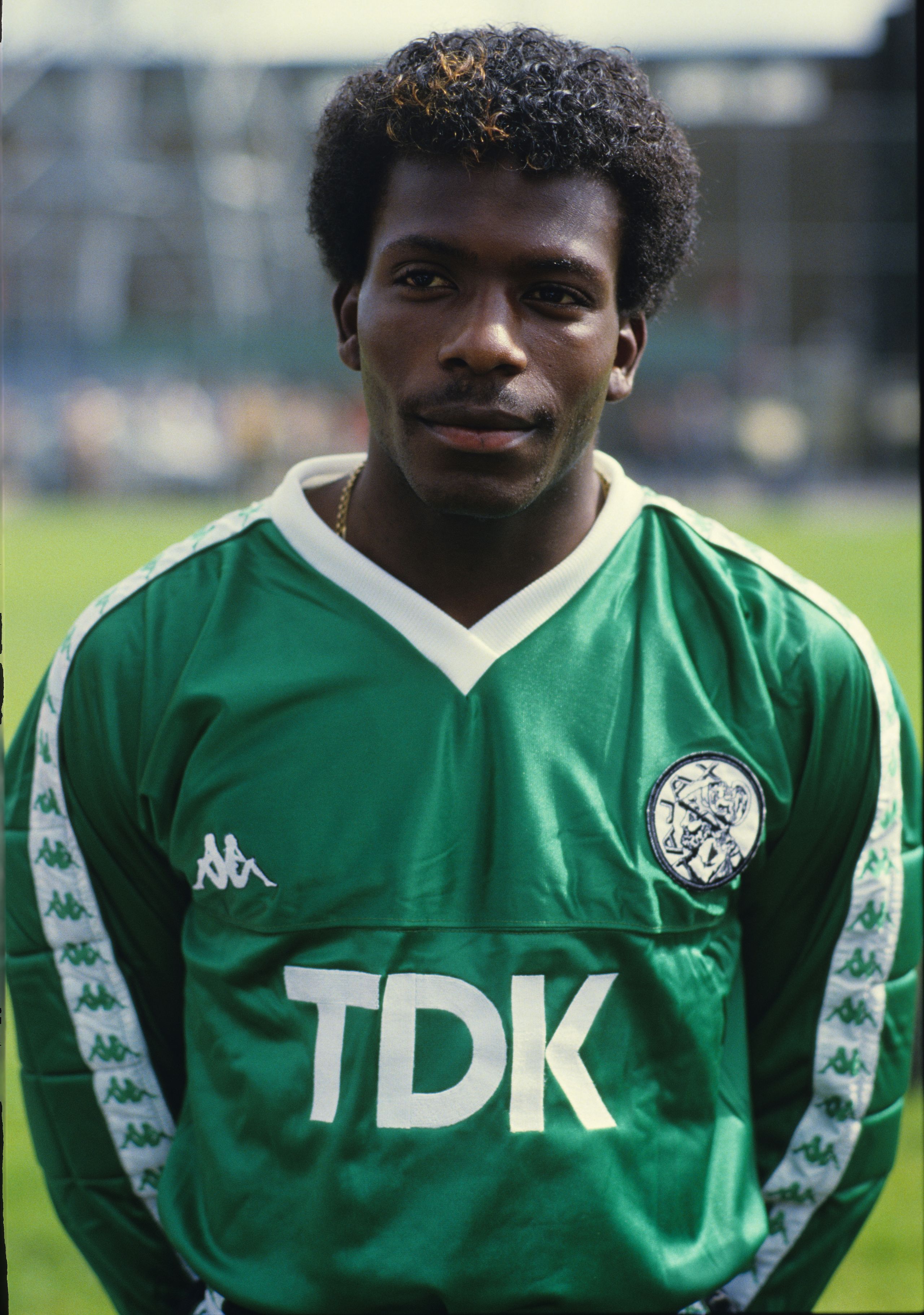
"I went up to Johan and he told me that the goalkeepers were pleased and enjoying the training. 'Yes, but Johan, I do not think I am doing a good job.' He asked me what I meant.
"I said that when I looked at the actual game, Stanley had problems choosing when to come out and when to stay. 'I don’t practise that,' I told him. 'I don’t practise defending the huge spaces in front of him. How can I expect him to do a good job when we don’t practise it and the only practice is the game? How can we improve that?'
"I told him that I needed some players. He gave me all the players that Thursday. I thought, 'Holy s**t, now I have a problem.' Because I knew that if I didn't do a good job that day then it would be the end of my career. That is what I knew. I didn't sleep the whole week.
"I knew I had to make the session game-related and I had to make it attractive for the players otherwise they would be bored. I planned it out and I explained it the best I could in a convincing way. 'This is what happens in a game, this is the problem, and this is how we are going to improve it.' I made it attractive for the attackers, defenders and goalkeepers.
"That was the start. In 1985. Four weeks into my career at Ajax."
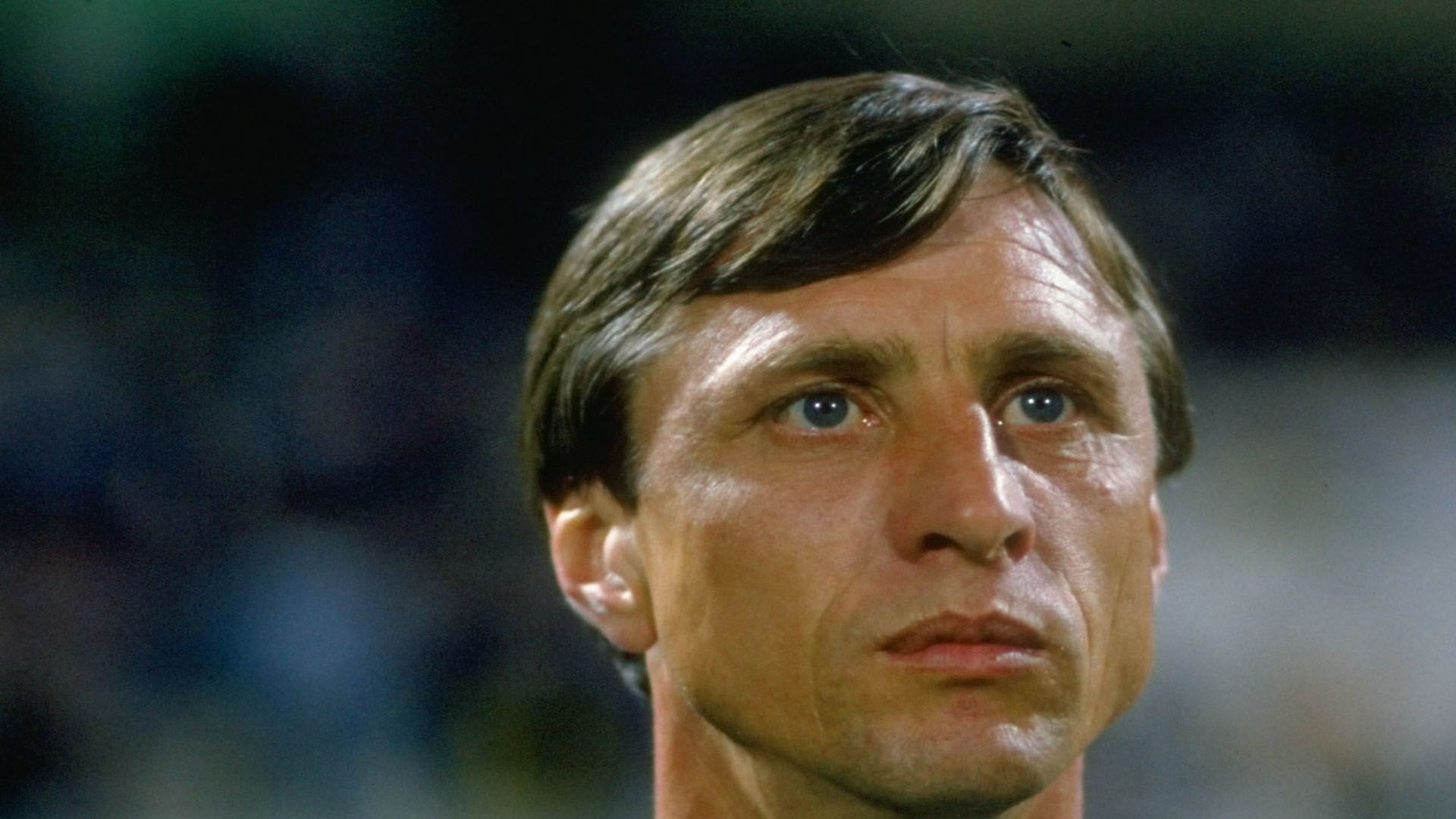
Goalkeepers have always been seen as somehow other and with good reason. But Cruyff was seeking to challenge the conventional reasoning. As he saw it, there would be eleven players on his team rather than ten players plus one.
"Johan had his own way of thinking and acting. For me, it was completely the opposite of what I had learned at the coaching schools. That was interesting for me.
"It was very easy for me to adapt to his thinking because I had been playing like that myself. I was the type who could read the game pretty well and I was not afraid to leave my line.
"That was vital for Ajax because their way of playing was basically the way of the national team in 1974 and 1978 with a lot of space behind the defence. Which meant they had a completely different type of goalkeeper at that time to what was seen as normal.
"At that time, the best goalkeepers were big and impressive. Think of Peter Schmeichel and Oliver Kahn. But there was nobody who could really read the game. They were more like the reactive type. Working at Ajax, you needed more the Jan Jongbloed type of goalkeeper."
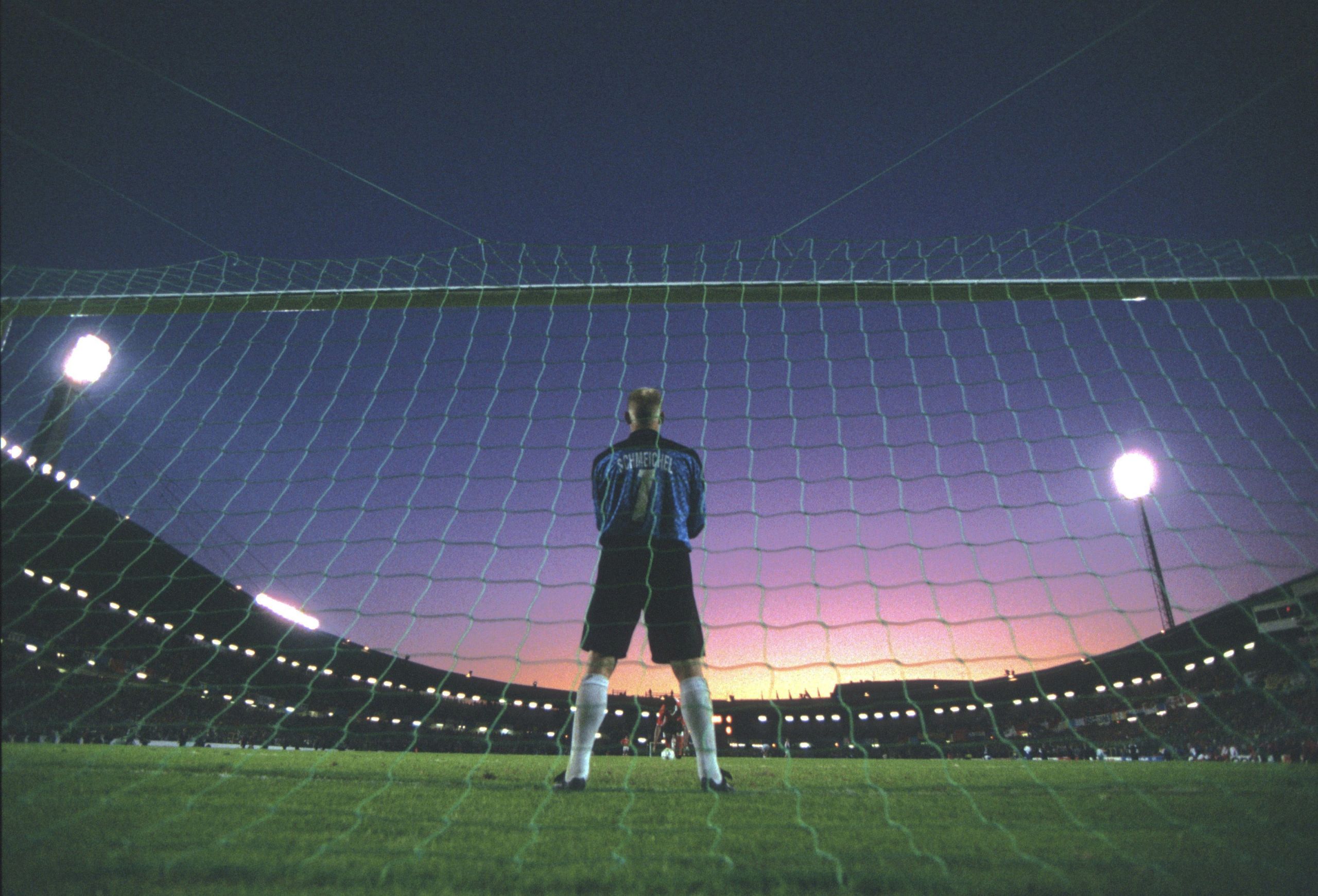
Like many of the great innovators, Hoek has lived long enough to see his methods become ubiquitous. The back-pass rule that prevented goalkeepers from handling passes kicked to them by their own team-mates was a major change that shifted the game his way. Three years after its introduction, his Ajax team were champions of Europe once again.
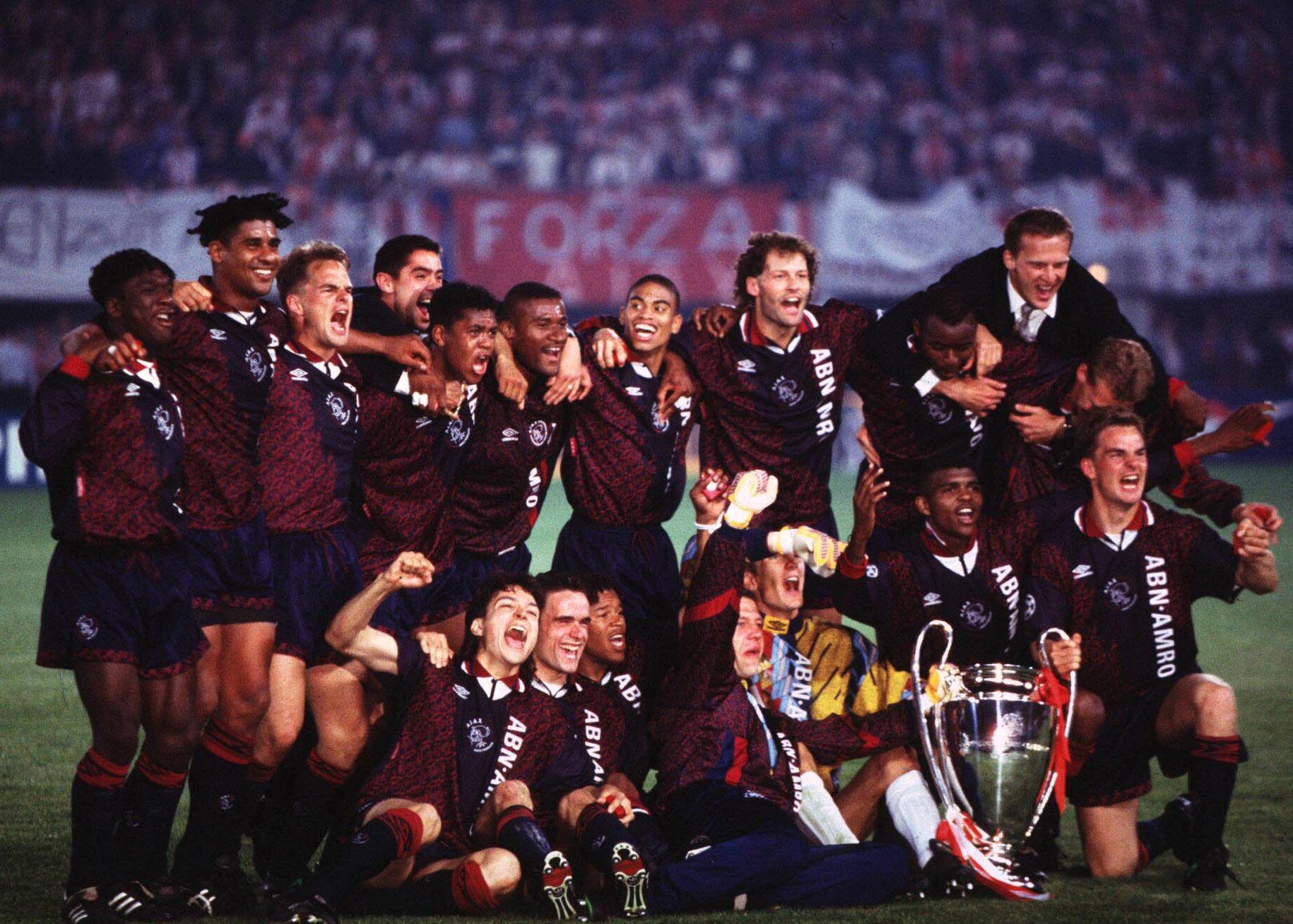
"I loved the back-pass rule," says Hoek.
"Everybody hated it but I loved it. Really loved it. It fitted perfectly with our way of thinking at Ajax. We had a big advantage. Firstly, if we had the ball, but also if the opponent had the ball because if they passed it back to their goalkeeper he did not know what to do with it.
"From the start, we had a big advantage.
"I have been very lucky. Slowly but surely what I was practising all along has started to come into the game. The interesting part is how the game continues to develop. Look at the coaches who really break with the way of thinking.
"Look at Jurgen Klopp. The prizes began to come his way when Alisson started playing. That is interesting. Look at Manchester City. The prizes started to come in when Ederson started playing. The goalkeeper is probably more valuable than everyone thought they were."
Yet, Hoek still faces resistance to his methods.
At first, that was inevitable. "People thought I was crazy," he admits.
But even after being part of Champions League success and winning domestic titles in Holland, Spain and Germany, it is not unusual for Hoek's methods to make goalkeepers uncomfortable.
"People want to be in their comfort zone. If I am going to take people out of their comfort zone they will be uncomfortable. That is not what they want. But my whole life I have been out of my comfort zone. That is how you improve. It is the only way."
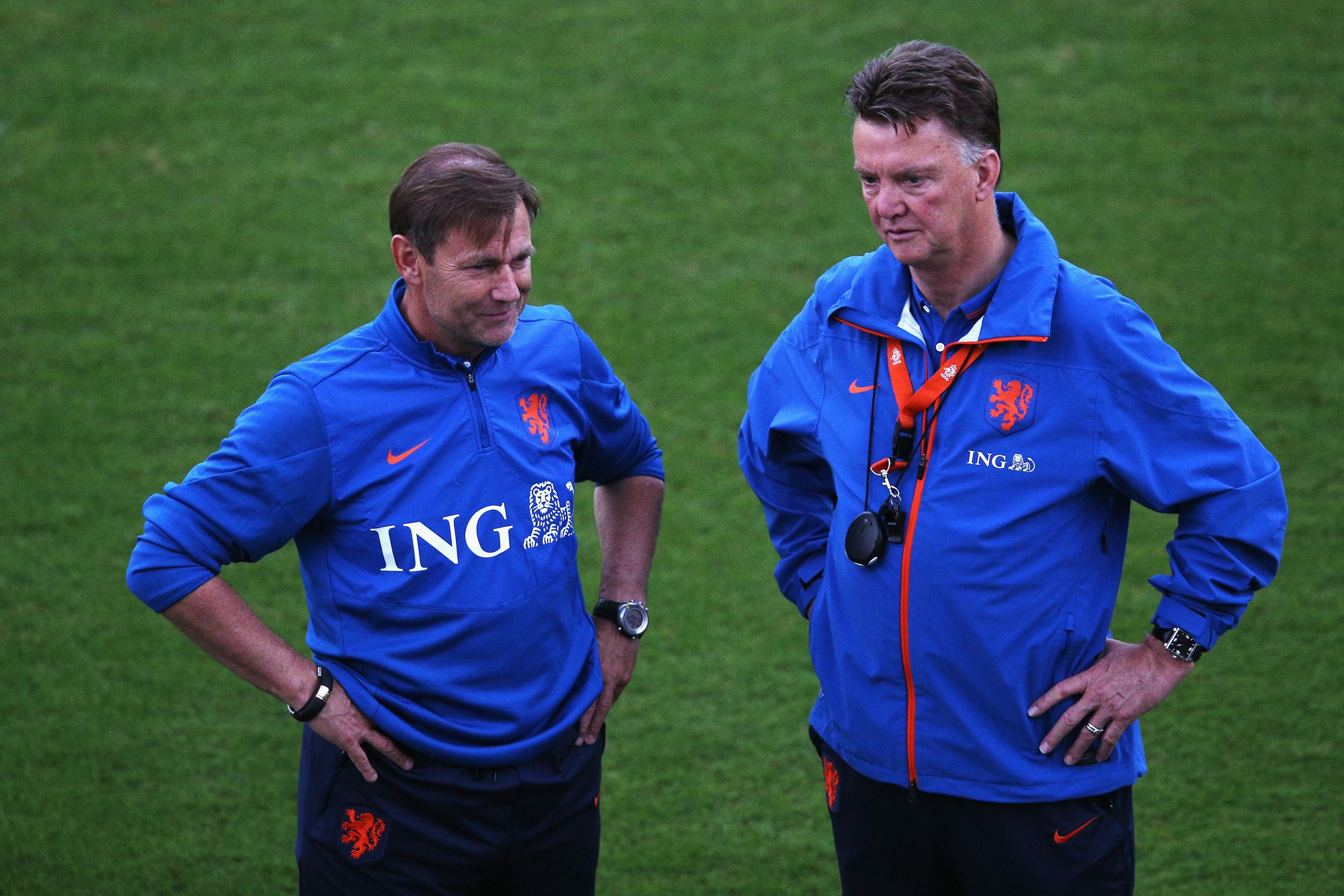
There were reports David de Gea and the rest of the Manchester United goalkeepers were particularly uncomfortable during Hoek’s time with Van Gaal at Old Trafford.
Hoek confirms it.
"If you are used to doing things a certain way all through your career and that way has made you become the goalkeeper of Manchester United and I bring you out of that then you are going to wonder what I am doing and why I am doing that," he says.
"But I am not afraid to do things that I am convinced make goalkeepers better. I do not look at the goalkeeper in isolation, I look at the total picture. You cannot look at it in any other way. It is all about the relationship of the goalkeeper with the team.
"If I want to be a better at cycling, I need to cycle. If I want to be a better runner, I need to run. If I want to be a better goalkeeper, I need to play with my players against the other players because that is the reality. That is still quite unusual but in my opinion there is no other way.
"For me it is no more than logical. The game changes so I need to change. The demands of the game change what we want from a goalkeeper. So how are we going to integrate that?
"When I look back over the years, I can say that during my 12 years at Ajax it was maybe 50-50 between isolated and integrated training. I still believed then that isolated training was important. I kept it like that for a while until it became maybe 70-30 in favour of integrated.
"At Manchester United, it was maybe 80 to 90 per cent with the team and only 10 to 20 per cent without the rest of the team. I can tell you that the goalkeepers did not like that.
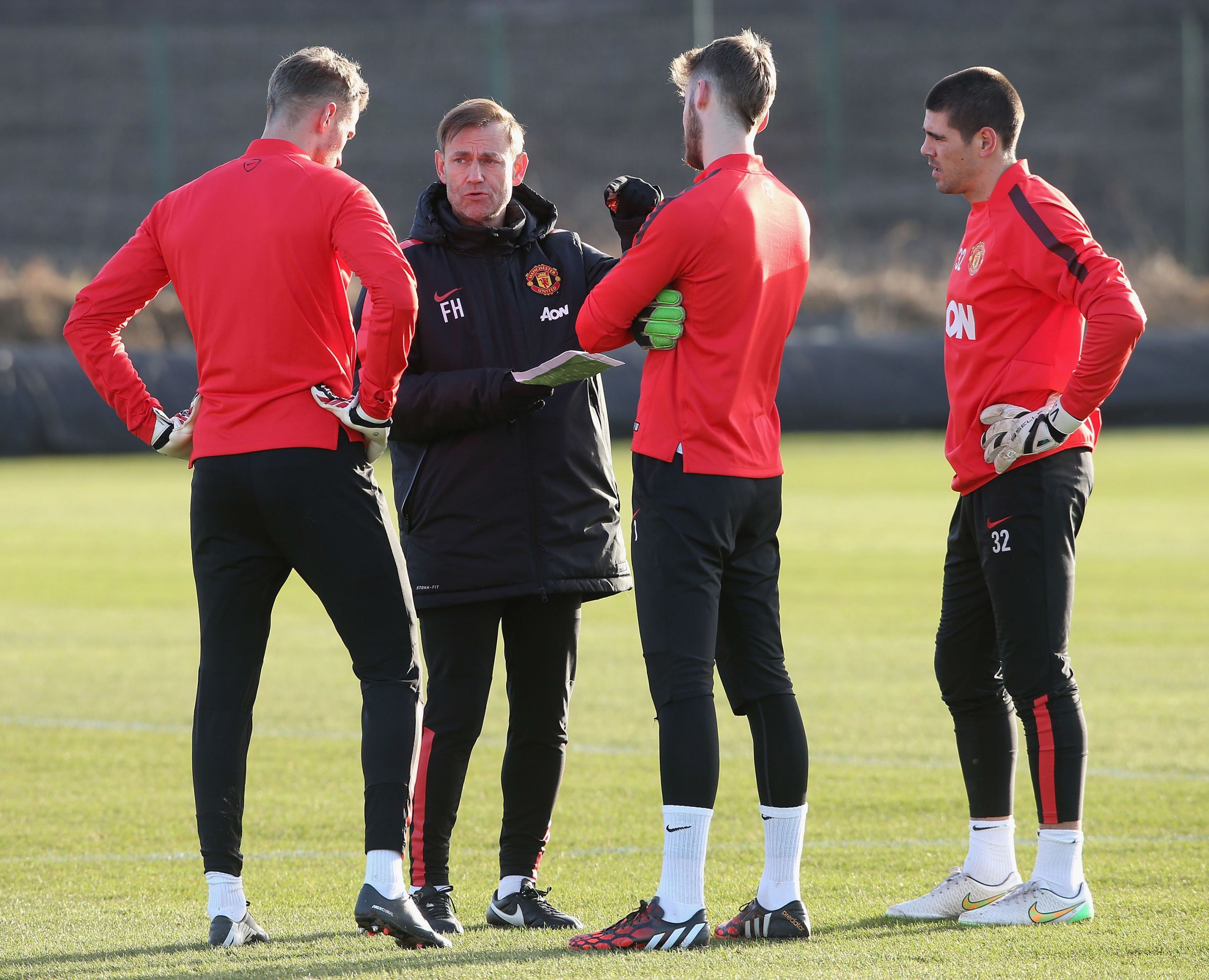
"It was completely different to what they were used to. I was very stubborn because for me there was only one thing that counted – progression in the game. The problem was that the isolated practice was not always improving them. In fact, it was even making them worse."
How could that be the case? Surely facing shots is the best way of learning how to save shots in a game situation? Once again, Hoek has an answer. It is lengthy and persuasive.
"Think about isolated goalkeeper practice. It is just one person taking a shot. How often does that happen in a game? When the assistant coach was taking shots at me, after one practice I knew everything about his kick. There were no surprises. Nothing.
"Not only that, if I am talking about a game, I am talking about my team-mates, defending and attacking together as a team. So you have to work together and read the situations.
"I started that young with Victor Valdes and Pepe Reina at Barcelona because I knew that if they had trained together as part of the team then the only thing that mattered after that would be whether they could deal with the pressure of 100,000 people watching them.
"The phrase you always hear with goalkeepers is that the older they are the better they get. Why? It is because they are always practising in isolation and becoming better by playing games. So when a goalkeeper is 30 they have been playing 10 years and had 400 games.
"If you bring the game moments to the practice then he is going to recognise these game moments much earlier in his career so he will need less time to reach his peak.
"Edwin van der Sar was the number one at 22. Valdes at 20. Reina at 20. It is not exceptional as long as you have the right methodology to make them aware of the game situation.
"I don’t care about resistance. It is not about me. I do this because I want people to wake up and to confront them with different things. Make them think. My job is to provide the goalkeepers with the best coaching. That means being open. If you don’t agree, show me how you would do it. If someone thinks differently, perfect. But explain why."
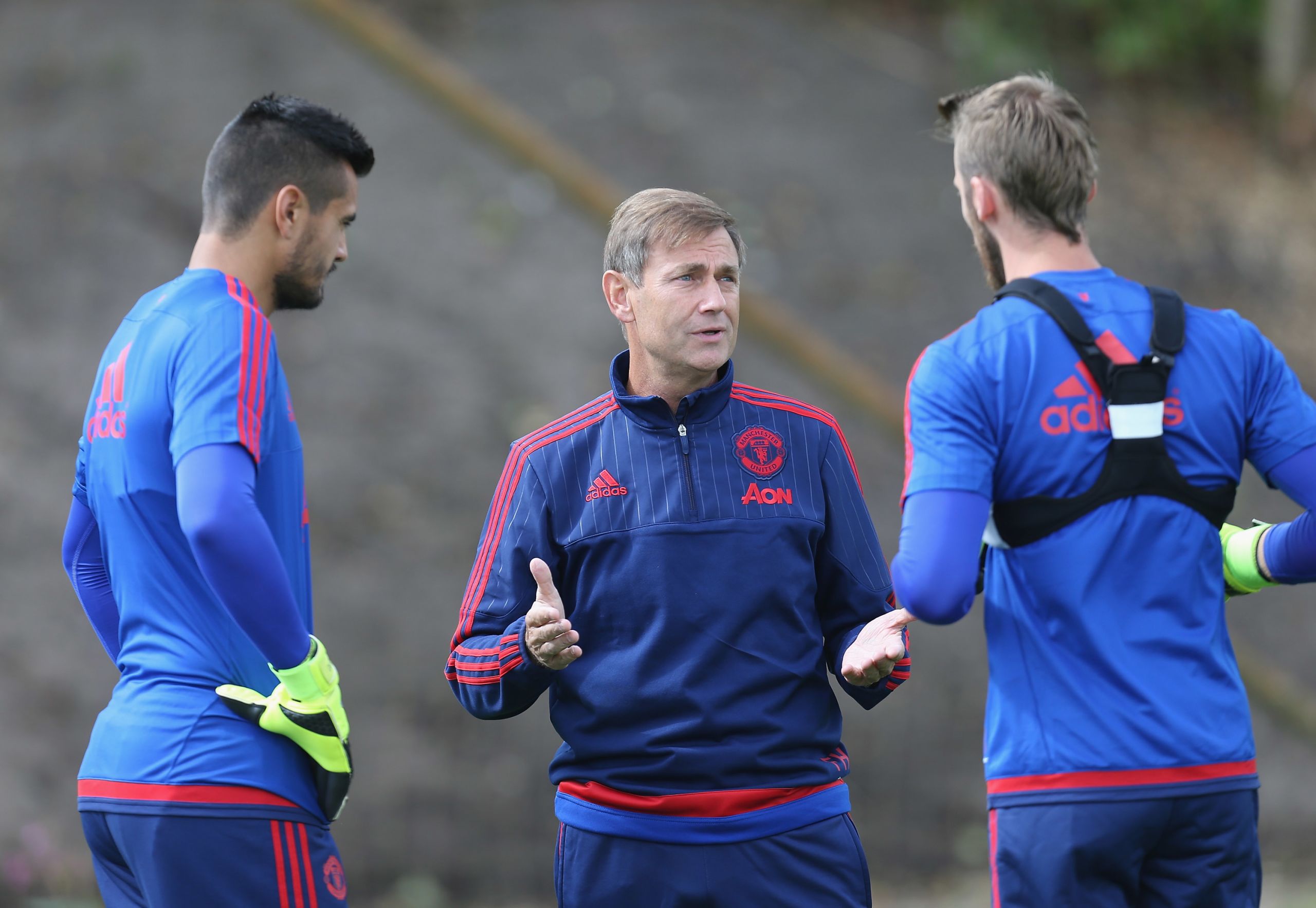
The most famous example of Hoek thinking differently came in Salvador, Brazil, after 120 minutes of the 2014 World Cup quarter-final between the Netherlands and Costa Rica.
Van Gaal made the decision to replace Jasper Cillessen with Tim Krul just before the impending penalty shootout. Krul proceeded to make two crucial saves as the team progressed to the semi-final. Some hailed it as innovative. Others accused Van Gaal of crushing the confidence of Cillessen. For Hoek, it was a decision based on pure logic.
"I am an assistant, an adviser," he explains. "The head coach always has to take the final decision. But the changing of the goalkeeper for the penalties, that was logical because of what Cillessen had done during his career facing penalty kicks. He had not improved. The other goalkeepers, who were not as good as Cillessen, did improve on penalty kicks.
"When you hear that background, it is so logical. It is unusual but it should not be unusual. It is just about finding the best solutions for your team so that you can win the game or win the shootout. You have to make the best decisions for your team. That is it. You don’t have to think about what the outside world will say because they do not win games for you."
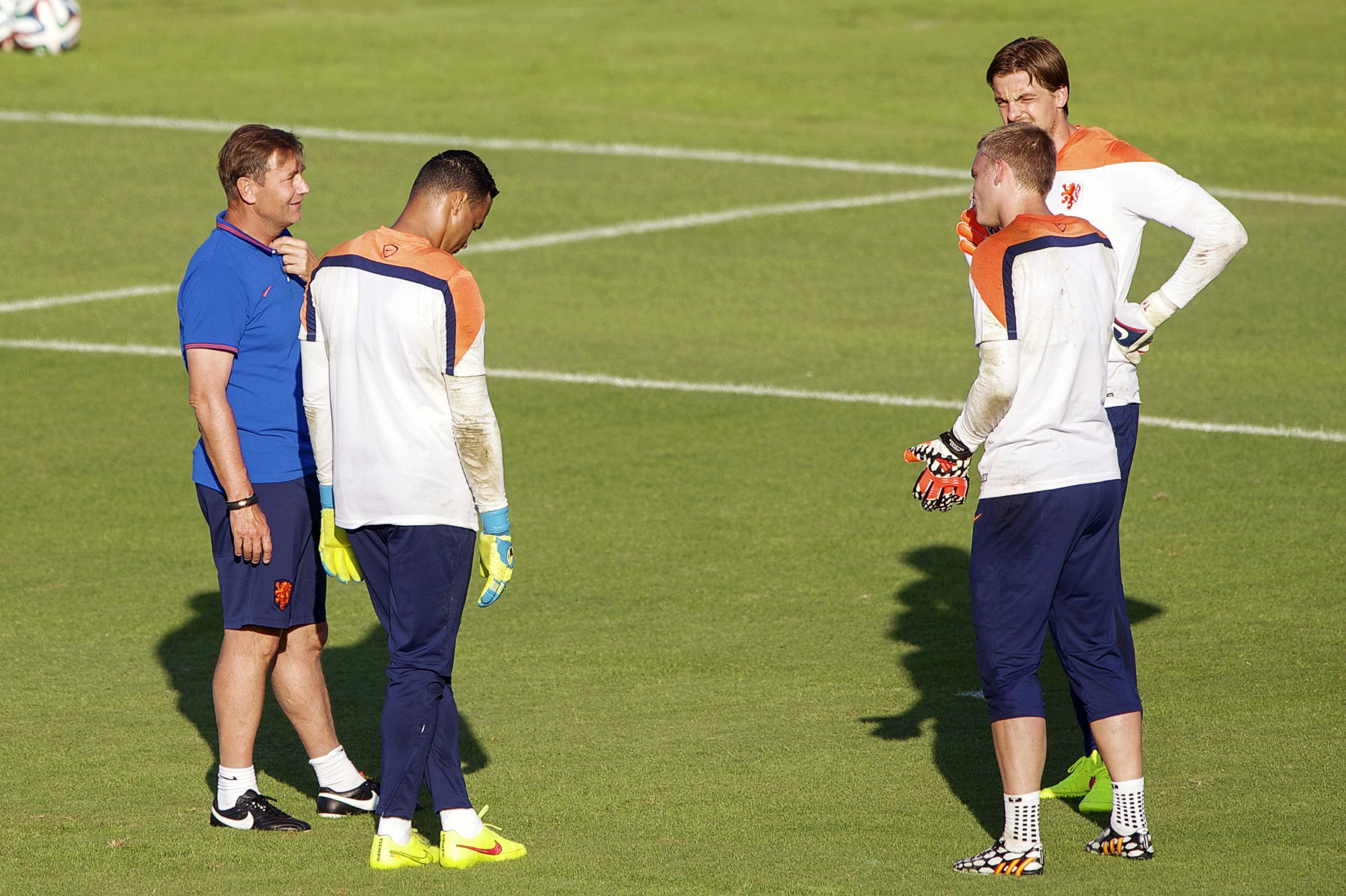
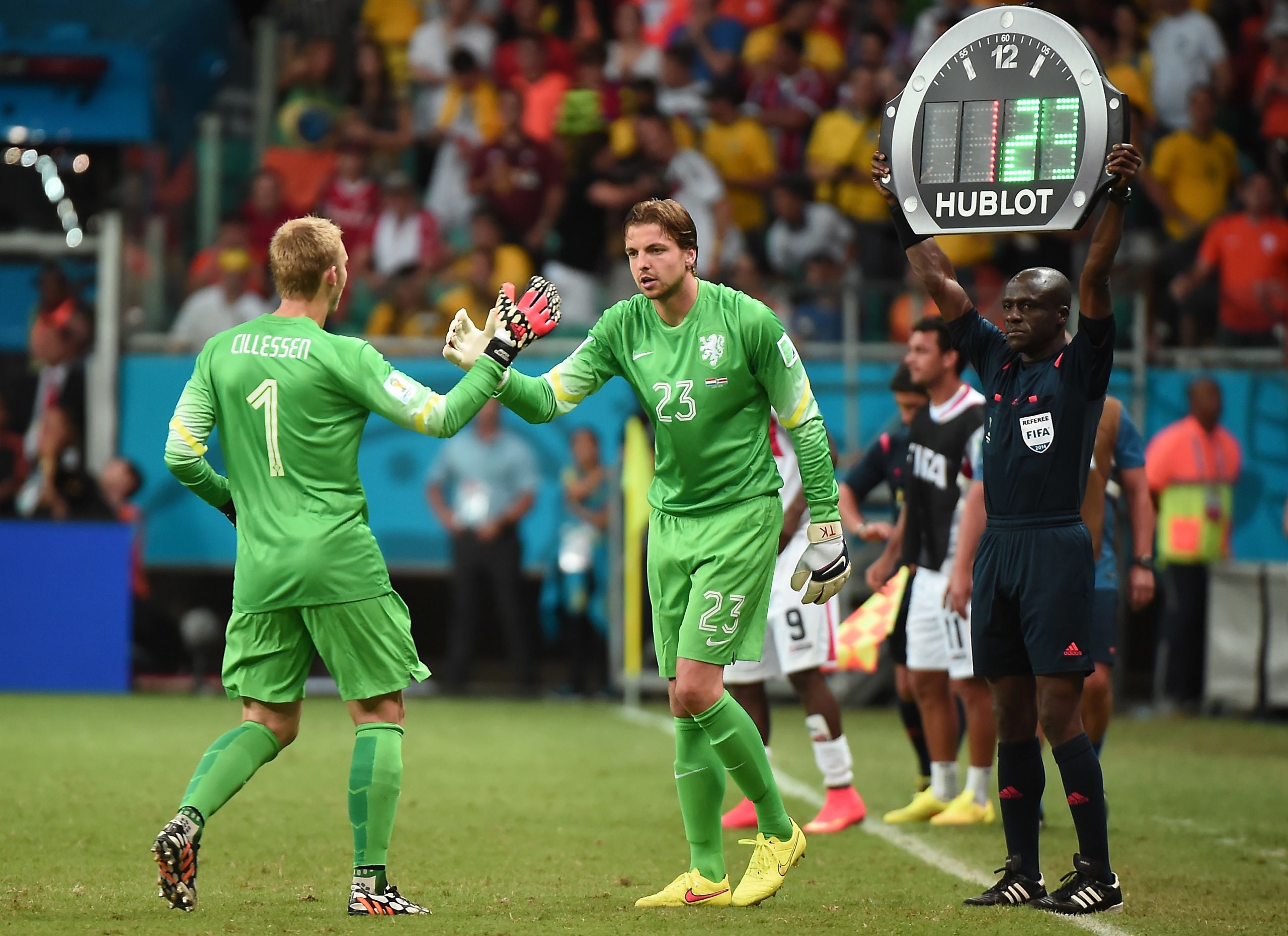
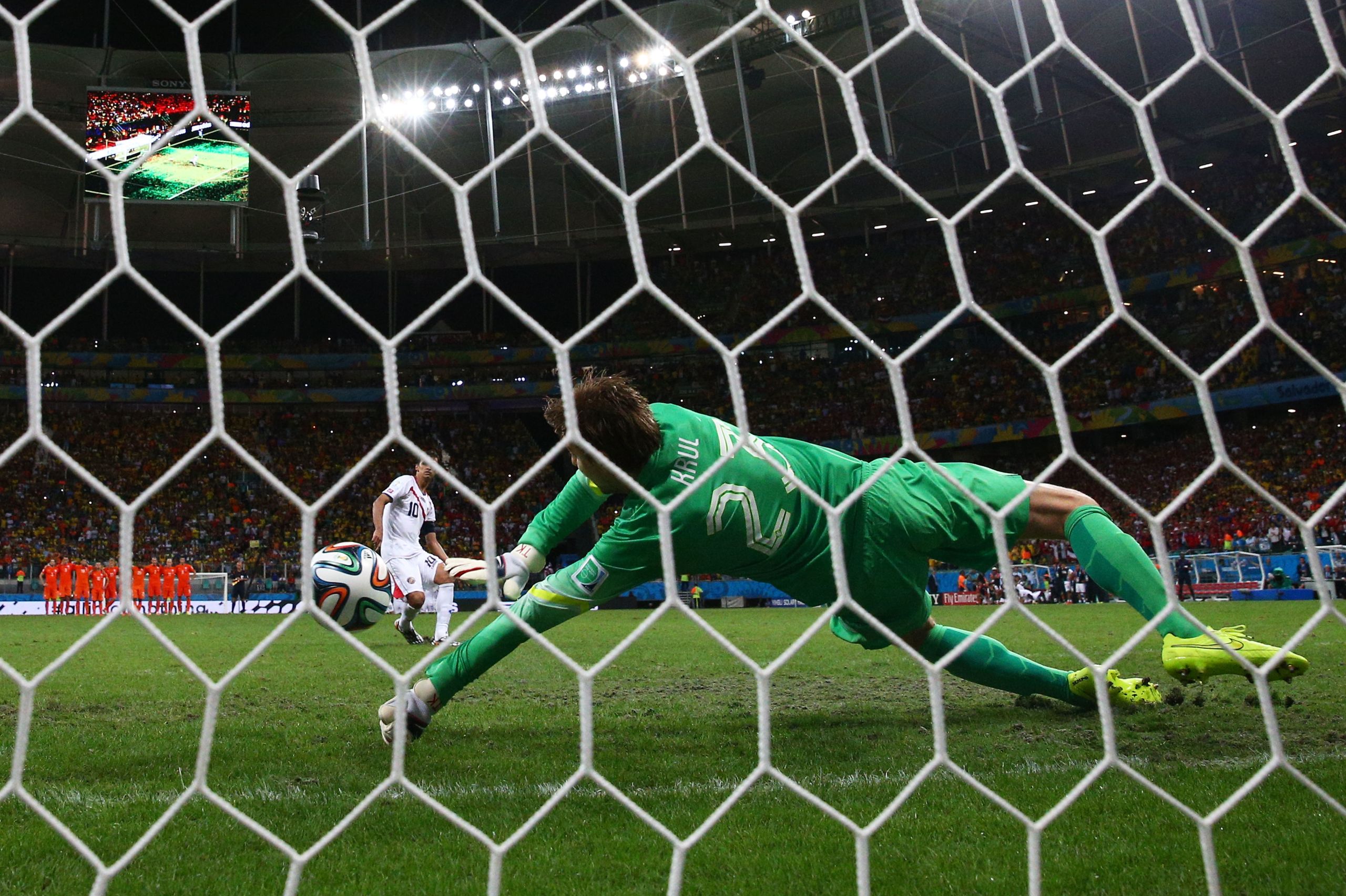
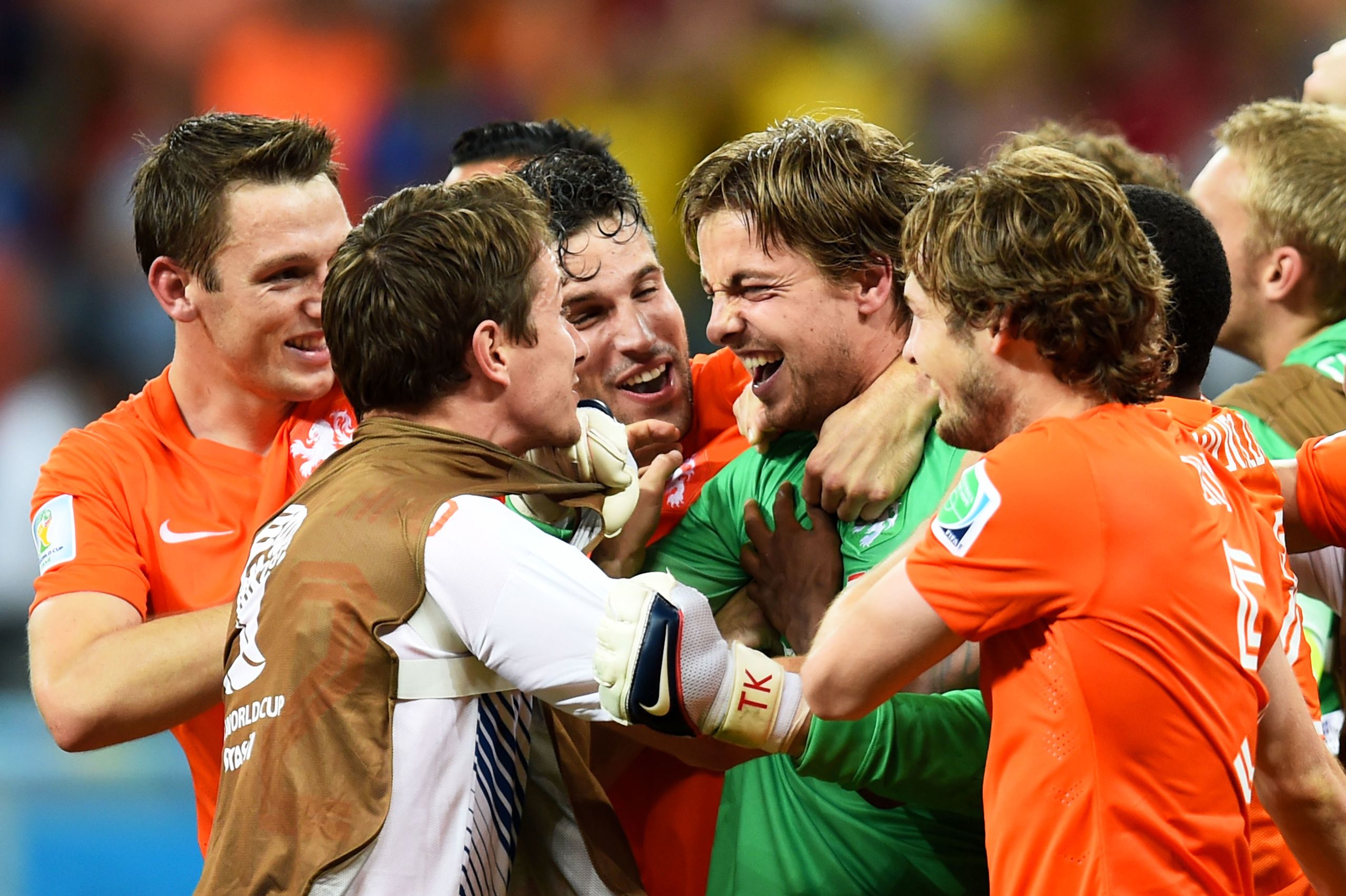
It sums up Hoek’s approach. Never afraid to innovate, always open to new ideas. "I have tried everything that you can imagine," he says with a smile.
He has decided to call time on his career working with just one club. Hoek's life is now divided between his home in Hoorn, his role as technical director of Orange County Soccer Club in California, and what he describes as an "incredible project" guiding the future of Japanese football.
"They want to be world champions in 2050," he explains. "Thirty years from now I will probably not be alive. The goalkeeper who will do that for Japan is probably not even born yet. But I try to provide them with a platform that will allow them to learn."
If the rules of the game have changed by the middle of the century, Hoek wants these players to be ready for it. He wants these players to be ready for anything.
"The pass-back rule was an incredible change but we were ready. If FIFA decide that the goalkeeper can no longer use their hands or their arms, you need to be prepared for that.
"How could we turn that to our advantage? It would be very interesting."
And with that Hoek's mind is wandering to football’s next innovation. Now 63, his career cannot go on forever. But expect Frans Hoek's influence on the game to endure.


